May 18, 2025 | 15:32 GMT +7
May 18, 2025 | 15:32 GMT +7
Hotline: 0913.378.918
May 18, 2025 | 15:32 GMT +7
Hotline: 0913.378.918
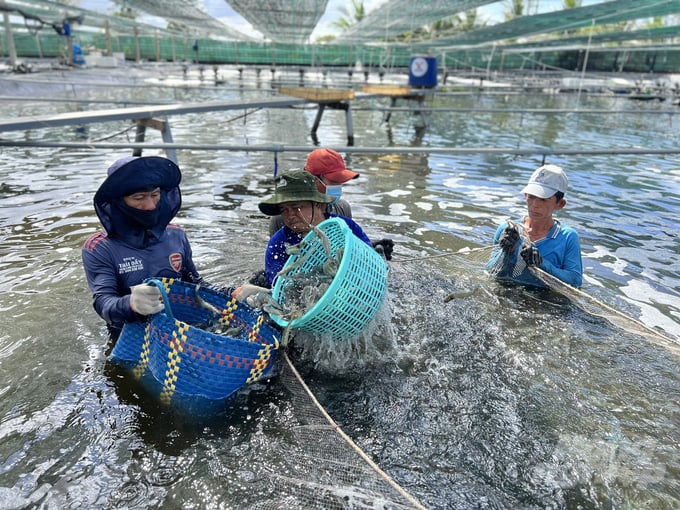
The aquaculture industry in Bac Lieu has developed quite strongly in recent years, in addition to the discharge of waste into the environment causing water pollution. Photo: Trong Linh.
Recently, the fisheries industry in Bac Lieu province has developed very quickly, bringing many economic benefits to farmers, especially the super-intensive shrimp farming model. Currently, Bac Lieu province has about 25 organizations and more than 830 households raising shrimp using high technology, mainly concentrated in the production area south of National Highway 1A.
However, raising shrimp at high density, from 250 - 300 shrimp/m2, poses a series of environmental challenges. The number of intensive shrimp farming households that have built complete farming areas and ensured waste treatment still needs to be increased. Most people discharge waste directly into the environment, leading to canals in regions with intensive shrimp farming being polluted, giving off a foul smell and affecting the water sources of residential areas.
Even though local authorities came to the provincial government to campaign and propagate, super-intensive shrimp farming households needed proper awareness. Some still secretly discharge waste outside without treating the water source. In some cases, biogas sludge treatment works were built but operated inappropriately, causing destruction not to be treated according to regulations.
Local authorities have popularized farmers to treat wastewater by one of three methods. First, with the biological method, water from the pond is discharged into the wastewater pond. This pond raises tilapia mullet, grows aquatic plants, etc., combined with microbiological treatment for biological filtration, applies water circulation methods, and reuses the pond.

The water circulation model helps protect the natural environment and develop stable economics. Photo: Trong Linh.
Second, with the chemical method, water from shrimp ponds is discharged into wastewater ponds, using biocides (permanganate, chlorine, etc.) to kill harmful microorganisms and reduce organic pollution parameters muscle. Wastewater is kept in the pond for a minimum of 7 days before being reused in the pond.
Finally, the mechanical method uses sand and activated carbon for mechanical filtration, then reuses it for the pond.
Regarding waste treatment, farmers are encouraged to treat waste with Biogas systems. Farmers are advised to use a siphon to put into the gas pit for garbage such as shrimp shells, feces, leftover food, etc.
Shrimp shells are collected, and there must be a place to process or use them as animal food or fertilizer for plants. Shrimp feces and excess food are put into a biogas digester to create gas. Wastewater from the biogas digester overflows through the water pipeline system into the settling pond for biological treatment before being discharged outside or recirculated into the pond. Output water quality must be ensured according to prescribed standards.
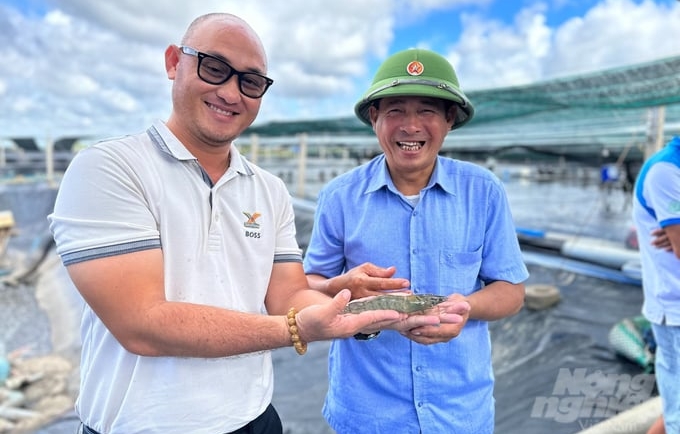
Mr. Pham Van Chu (Bien Dong A hamlet, Vinh Trach commune, Bac Lieu city) is happy with the bumper shrimp crop thanks to the water circulation model of GrowMax Company. Photo: Trong Linh.
Sludge from the farming process must be collected, placed in the right place, and treated to avoid polluting the farming area, ensuring general hygiene inside and outside the pond area. Household waste and packaging of products used in the farming facility must be collected and placed in containers with lids. Containers must not be placed on the banks of farming ponds and storage and settling ponds.
In Bac Lieu province, shrimp farming wastewater concerns the Department of Agriculture and Rural Development, the Department of Natural Resources and Environment, and related organizations.
Mrs. Trinh Khanh Ngoc, Director of the Environmental Protection Department of Bac Lieu province, said that along with people continuously expanding shrimp farming areas, the Department of Natural Resources and Environment of Bac Lieu province has advised the Provincial People's Committee to ban issued Decision 23 regulations on environmental protection in aquaculture activities; Decision 948 of the Provincial People's Committee promulgating regulations on receiving and processing hotline information on environmental protection in the province, etc.
"We organize monthly monitoring of surface water environmental quality and widely announce it on the mass media, on the Department of Natural Resources and Environment website to serve production, life, people's activities," Mrs. Ngoc said.

GrowMax Company's water circulation model. Photo: Trong Linh.
Additionally, Bac Lieu province continuously organizes campaigns and encourages corporations and businesses to support and transfer farmers to apply advanced processes and technology to clean and environmentally friendly production. Some technologies of interest include the economical use of water resources and circular production models associated with green growth.
Mr. Pham Van Chu, Bien Dong A hamlet, Vinh Trach commune, Bac Lieu city, shared that from 2023, he will apply the water circulation process with guidance and technical support from Growmax Vietnam Company Limited.
After 100 days, compared with four models, Mr. Chu's shrimp reached a weight of about 22 per kilogram. Meanwhile, the control shrimp only got 30 - 32 shrimp per kilogram. "GrowMax Vietnam's water circulation model provides high productivity and protects the environment," he commented.
According to Mr. Chu's estimates, applying the water circulation shrimp farming helps farmers reduce investment costs by about 30%. In addition, wastewater can be reused to serve new shrimp, reducing dependence on water sources from irrigation canals. People also reduce the cost of pumping water and buying water treatment chemicals.
The water circulation shrimp farming transferred by GrowMax Vietnam is being applied to many areas in the Mekong Delta.
In the context of unstable shrimp prices, the water circulation of shrimp farming helps produce cleaner products and enhances competitiveness in the market.
Translated by Tuan Huy

(VAN) Deputy Minister Nguyen Quoc Tri also expressed his hope that Cuba will soon overcome its current challenges, attain food security, and further expand cooperation with Vietnam.

(VAN) The project contributes to enhancing the resilience of communities vulnerable to the impacts of climate change, with a primary focus on local women.
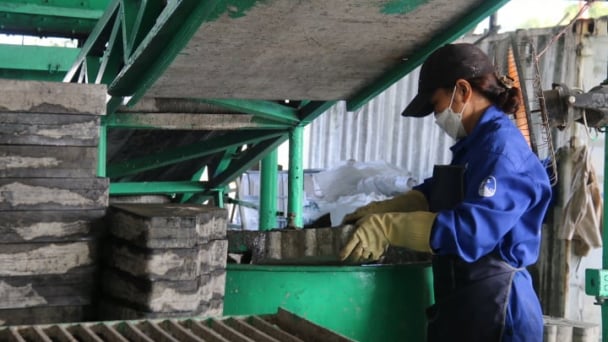
(VAN) Green materials help save energy and resources. However, after more than 10 years, Vietnam has only developed over 200 green buildings with more than 6 million square meters of floor space.
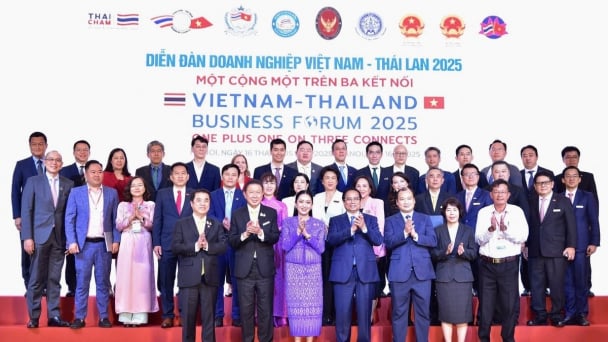
(VAN) Vietnam - Thailand Business Forum 2025: One plus one on three connects, marking a milestone in the comprehensive strategic partnership between the two nations.
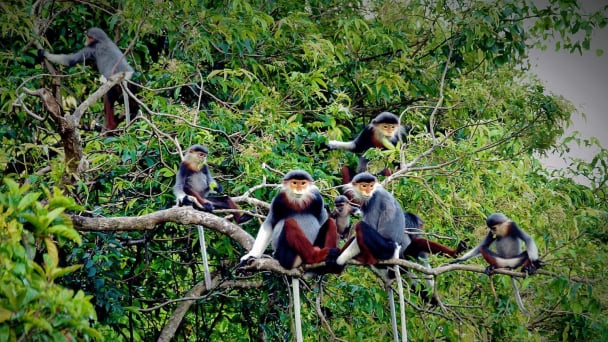
(VAN) The United Nations designated 22 May as the International Day for Biodiversity 2025 with the theme 'Harmony with nature and sustainable development.'
![Multi-channel, multi-directional Vietnamese agricultural markets: [8] A national strategy is needed](https://t.ex-cdn.com/nongnghiepmoitruong.vn/608w/files/phucpm/2025/05/15/1435-thi-truong-nong-san-viet-da-kenh-da-huongbai-8-can-mot-chien-luoc-quoc-gia-084750_728.jpg)
(VAN) The Chairman of Hung Nhon Group shared: ‘Opening up and tapping into new markets is the right and strategic direction for Vietnam's agricultural sector.’
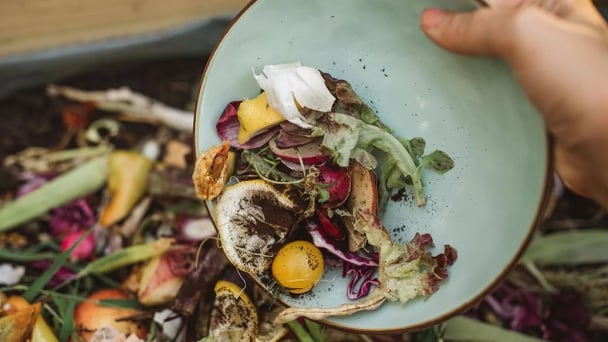
(VAN) Food waste has become a serious issue in modern society, especially in rapidly urbanizing and developing cities like Hanoi.